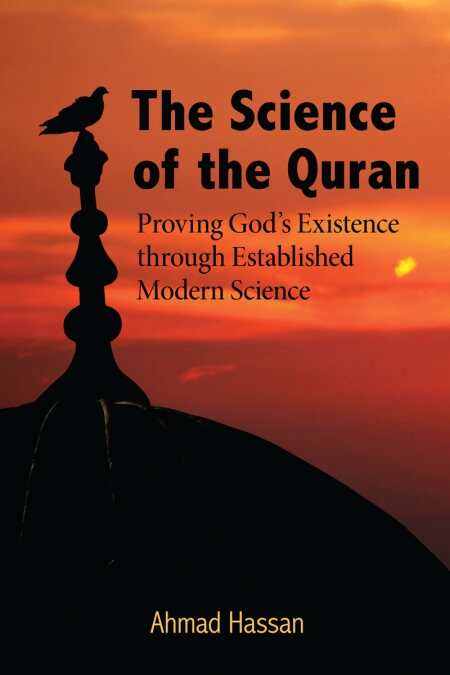The Science of the Quran
Proving God's Existence through Establsihed Modern Science
- 2012 INDIES Finalist
- Finalist, Religion (Adult Nonfiction)
In Western culture, the rift between science and scripture has often been contentious. During the Renaissance, when the discoveries of Copernicus and Galileo directly challenged the science of the Bible, the dichotomy became seemingly irreparable. One solution recognized the independence between scientific theories and scriptural truth.
In The Science of the Quran, Ahmad Hassan approaches the religion-versus-science predicament in a completely opposite manner. He states that not only are science and religion compatible, but that a careful examination of the Quran demonstrates that God’s revealed word to Mohammed proves the existence of a supreme being since the verses in the Quran validate modern scientific discoveries.
After a brief autobiographical introduction, Hassan devotes the first part of the text to a thorough and thoughtful examination of the Quran and explains the ways in which the ideas in his book differ from the teachings of Islam. He continues with a biographical chapter on Mohammed and how God revealed the Quran to him. In the second section of the book, Hassan summarizes the history of scientific thought from Archimedes to Einstein. In the third section, Hassan briefly explains more than three dozen scientific theories from the fields of astronomy, physics, biology, geology, and technology. After each explanation he notes the appropriate verse of the Quran which supports that particular theory.
In the field of Quranic hermeneutics, it is generally agreed that the verses of the Quran may have many meanings beyond their literal expression; the validity of these meanings have long been debated by scholars. Hassan admits that he is well aware of these discussions. He notes that “some readers may not accept that the Quran provides modern-day natural world insights and reject the conclusions arrived at in this book.”
Hassan’s concern is valid. The translation of the Quran he uses is his own, and his conclusions are based on how a particular word is rendered. For example, the Arabic word sema’a is usually translated as “sky,” but Hassan expands the concept by noting that the word “can mean Earth’s upper atmosphere, distant stars, faraway planets and the like.” Additionally, Hassan uses verb forms for nouns to bolster his interpretations. Within such broad etymologies, Hassan translates verse 51:47 as, “And the sky we [the god] built with [or through] hands, and we are surely expanding [or enlarging].” Hassan concludes that the verse explains the expanding universe that is also a part of the big bang theory.
The arguments for the other scientific facts continue in much the same manner, and some, Hassan admits, will raise a few eyebrows. He states that verse 2:74, about “rivers gushing,” refers to the Grand Canyon, and that verses 87:1-5, about “a black scum,” indicate the formation of crude oil.
Readers of the Quran who delight in discovering esoteric meanings in its verses will enjoy Hassan’s interpretations. General readers with little knowledge of the Quran and the prophet Mohammed will find the first sections of the book instructive and enlightening.
The Science of the Quran won the silver prize in the category of religion in the 2012 Independent Publisher Book Awards.
Reviewed by
Thomas H. Brennan
Disclosure: This article is not an endorsement, but a review. The publisher of this book provided free copies of the book and paid a small fee to have their book reviewed by a professional reviewer. Foreword Reviews and Clarion Reviews make no guarantee that the publisher will receive a positive review. Foreword Magazine, Inc. is disclosing this in accordance with the Federal Trade Commission’s 16 CFR, Part 255.

